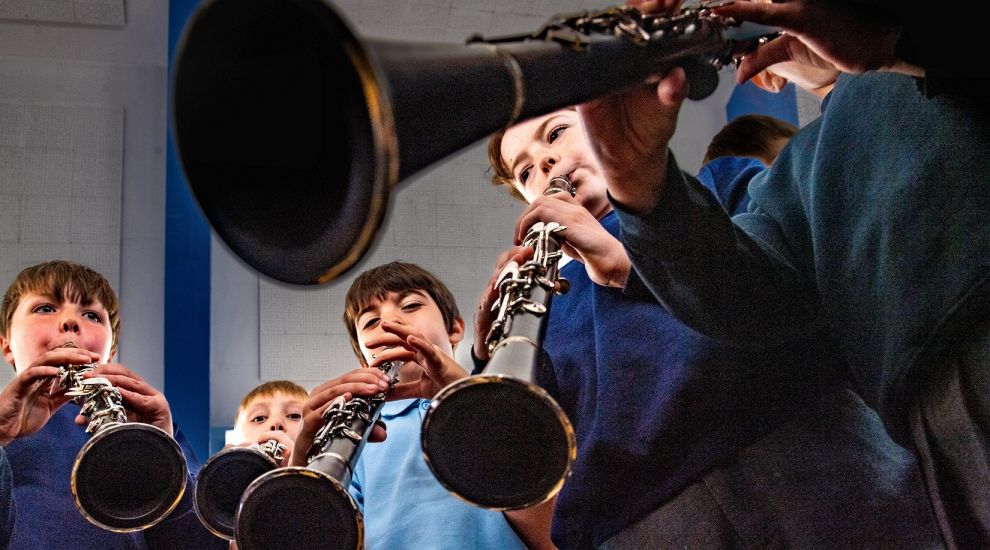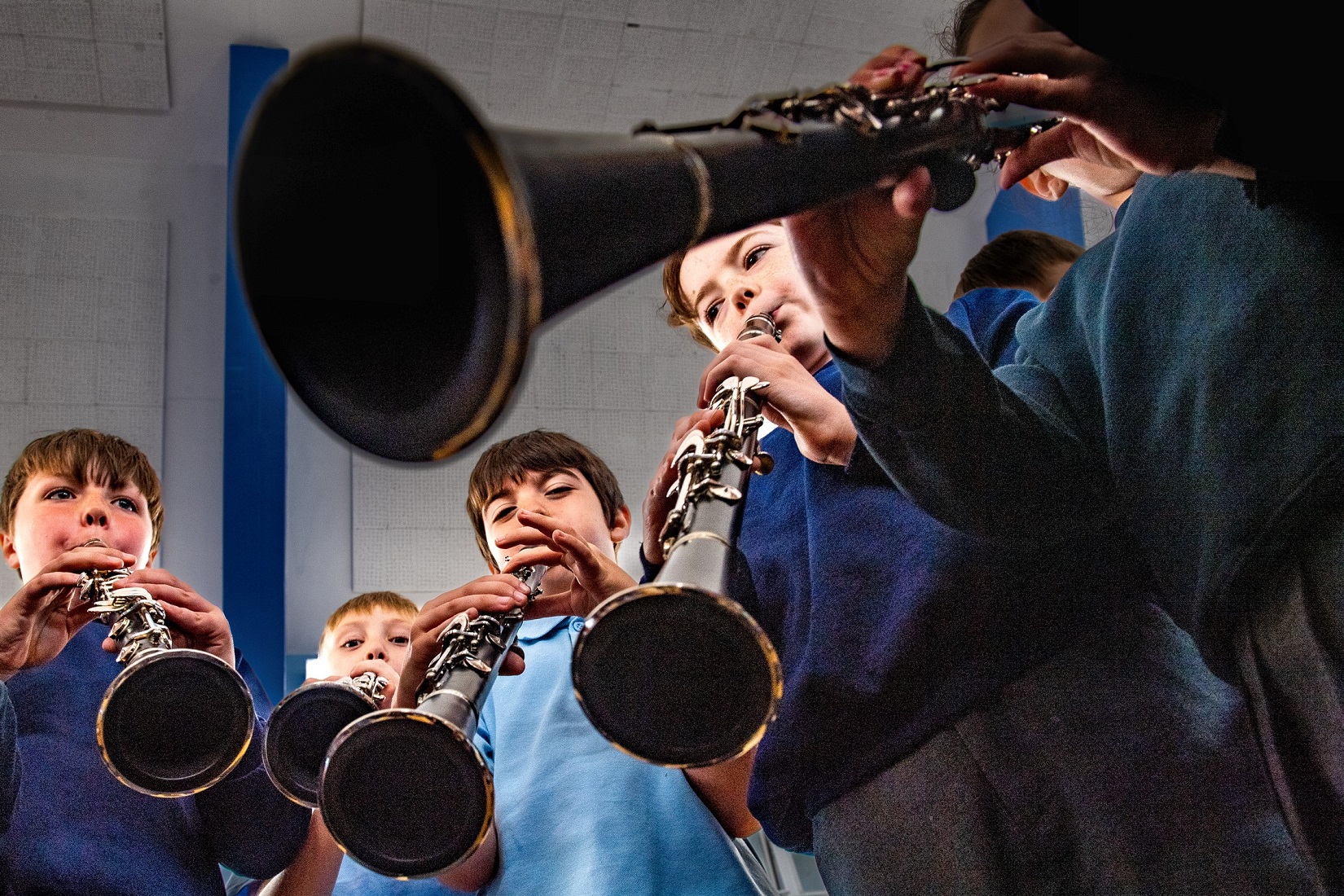


Over 700 primary school pupils across the island – regardless of their social or economic background – have received free and "formative" instrumental teaching during the past academic year, with both parents and teachers noting the benefits.
The Jersey Music Service’s Access to Music project allows every Year 4 child in a publicly-funded school to learn either the flute, clarinet, oboe, trumpet, French horn, violin, viola, or cello over the course of 10 weeks.
Due to the project's success, JMS has now secured funding to continue the project in the next academic year.
Mal Robson, Headteacher at Springfield Primary School, said: "It has really engaged the children. All of them can take part, at whatever level they are, and children are picking up new skills, new abilities, in every lesson."
Parents, meanwhile, have heralded the project as a "wonderful initiative" and "an amazing opportunity for all children to experience learning an instrument".

Pictured: Pupils at St Luke's School learning to play the clarinet as part of the 'Access to Music' programme (Jon Guegan).
As part of the programme, JMS provides schools with a scheme of work, weekly lesson plans with learning objectives, and collaboration with the class teacher and teaching assistant.
An instrument and accessories are provided for each child for the duration of the project which they also take home with them each week, and each project culminates in a whole class ensemble concert.
Dr Graham Cox, Principal of JMS, said the Access to Music programme provides "whole classes with a formative opportunity to experience and enjoy music-making."
He added: "These projects give children a hands-on experience of playing an orchestral instrument, which in turn gives them some understanding of what it's like to be a musician."
JMS actively signposts children and parents to a range of musical pathways leading on from the programme.
Dr Cox said: "Every child gets to make an informed decision about how they would like to continue to develop their musical learning."
Commenting on the broader benefits of the scheme, Dr Cox said: "Music makes an important contribution to the life of every school and should be celebrated, promoted, and encouraged. Research shows that music helps build pupils' self-esteem and self-discipline, and leads to higher standards across the curriculum. Playing as a whole class means that each pupil is part of the team. Everyone has a part to play, however large or small, and this inter-dependency helps build teamwork and a sense of ownership and achievement."
Dr Cox added: "It is fundamental to the programme that these experiences and benefits are not just for some children, but for all."
Comments
Comments on this story express the views of the commentator only, not Bailiwick Publishing. We are unable to guarantee the accuracy of any of those comments.